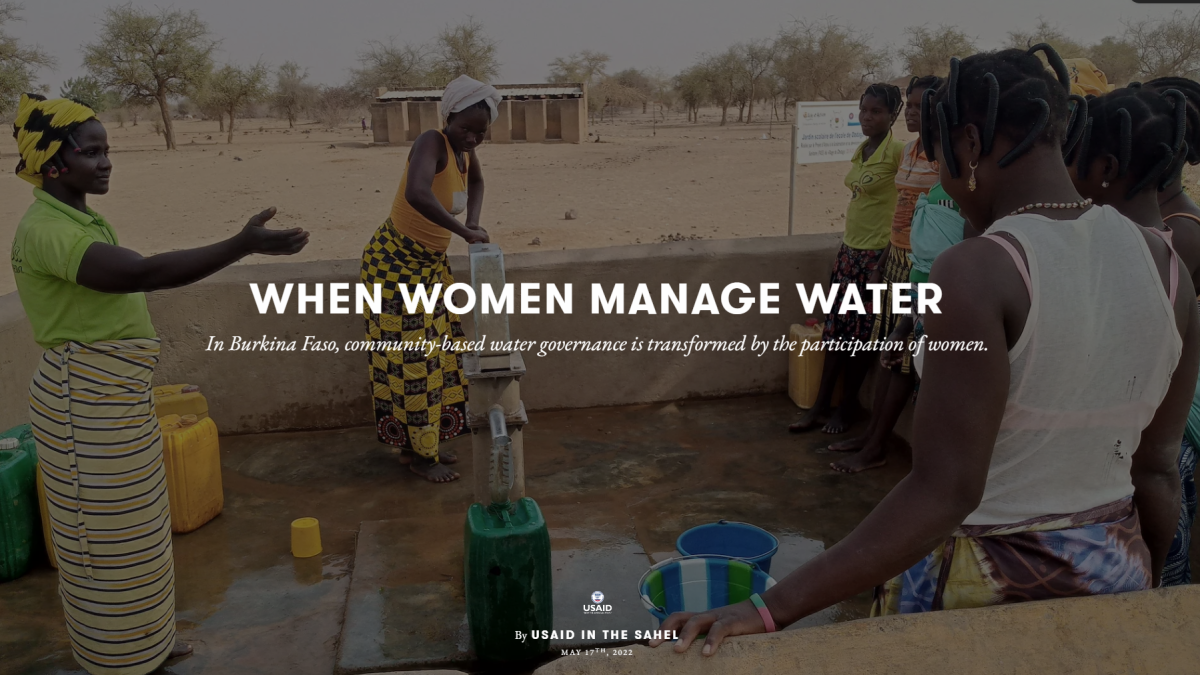Burkina Faso

Country Overview
Modest development gains in Burkina Faso are threatened by political instability, violent extremism, internal displacement, and the impacts of climate change. As one of the poorest countries in the world, Burkina Faso has some of the highest rates of illiteracy, child mortality, and malnutrition on the planet.
Our Work
USAID supports Burkina Faso’s efforts to confront development challenges, including enhancing the performance of agricultural markets and production, improving maternal and child health, climate change adaptation, improving governance and respect for human rights, reducing the burden of malaria, and responding to complex crises.
Our activities confront these challenges and increase the resilience of vulnerable people to better prepare for, go through, and recover from shocks and stresses. These can include armed conflicts, natural disasters, disease outbreaks, and harvest failures.
Burkina Faso has been subject to a steady rise in the number and impact of these shocks, worsened by COVID-19. As a result, the operating environment has become more difficult and complex.
To support the people of Burkina Faso to meet these challenges, USAID invested over $175 million in Fiscal Year (FY) 2021 in Burkina Faso to advance development objectives and deliver life-saving humanitarian assistance.
Agriculture and Food Security
In FY 2021, USAID provided more than $5.5 million in agriculture and food security funding reaching some of the most vulnerable communities, with an emphasis on women and youth. With these resources, USAID supports natural resource governance and management, agricultural market systems, access to finance, and nutrition. Additionally, in FY 2021 USAID invested $8 million to address climate adaptation, water, and sanitation.
Democracy, Human Rights & Governance
USAID promotes democratic values in Burkina Faso with a focus on improving the rights of women and youth through a portfolio of DRG activities with an investment of $6.2 million in FY 2021. USAID supports improved stability and increased resilience to violent extremism. To do this, USAID works with local governments, youth, civil society organizations, and community leaders to promote democratic elections, advocate for human rights, foster economic opportunities, promote civic participation, and help local governments better respond to citizen needs.
Global Health
USAID’s support to Burkina Faso’s health sector includes: reducing the threats of malaria, neglected tropical diseases, emerging pandemic threats, and HIV/AIDS; improving nutrition; and responding to family planning needs and maternal/child health. In FY 2021, USAID health programs totalled $70.5 million. To address malaria and malnutrition, USAID, the Government of Burkina Faso, local communities, and civil society organizations work together with a focus on children under 5 years of age, as well as pregnant and breastfeeding women.
As the COVID-19 pandemic continues to unfold, USAID plays a leading role for the United States to support the country’s response to the deadly virus. The agency has provided nearly $12 million in FY 2021 for COVID-19-related health and humanitarian assistance and donated over 2,250,000 doses of vaccines.
Humanitarian Assistance
Growing insecurity and inter-communal conflict since 2019 have significantly exacerbated humanitarian needs in Burkina Faso, increasing the number of internally displaced persons to over 1.5 million and leaving approximately 3.5 million people in need of humanitarian assistance. USAID contributed more than $54.5 million in FY 2021 to address humanitarian needs, including funding to support an estimated 3.1 million people during the June-to-August lean season with emergency food assistance.
USAID’s humanitarian programs provide basic health care, protection services, drinking water, shelter, and improved water and sanitation infrastructure among conflict-affected communities. USAID also supports a Resilience Food Security activity, a multi-sectoral, long-term investment targeting the most vulnerable in more than 200 villages facing repeated shocks and stressors due to climate change and the ongoing humanitarian crisis. In FY 2021, USAID invested $15 million in the Resilience Food Security activity.
Education
In support of the Ministry of Education’s National Education in Emergencies Strategy, USAID is implementing Education Cannot Wait, a global initiative managed by UNICEF that targets the emergency education needs of over 800,000 children who are out of school due to insecurity. USAID’s funding is expected to benefit more than 30,000 out-of-school youth through distance learning, the provision of learning materials, and improved water and sanitation conditions in schools. In FY 2021 USAID invested $4 million in the education sector in Burkina Faso.
Field Office and Support Structure
USAID has a limited presence office in Ouagadougou. The office is composed of a USAID Country Representative and a team of dedicated local and international development specialists. They serve as advisors and managers for U.S. government development and humanitarian assistance activities in Burkina Faso. They also monitor program implementation and play a lead role in engaging with the Government of Burkina Faso as well as its in-country counterparts.
USAID Senegal’s Sahel Regional Office, including the Regional Bureau for Humanitarian Assistance Office, and the USAID/West Africa Regional Mission in Ghana share the management responsibility for activities in Burkina Faso.






